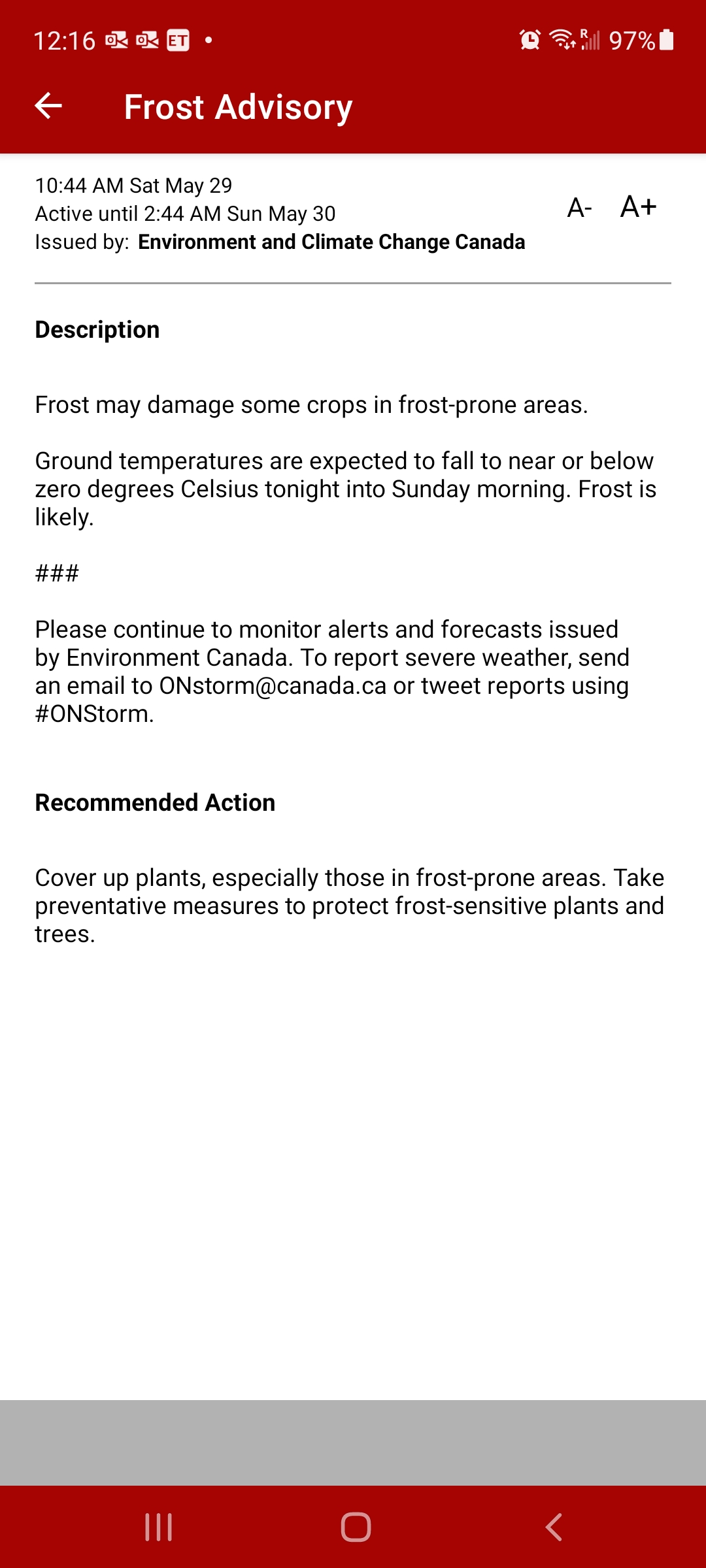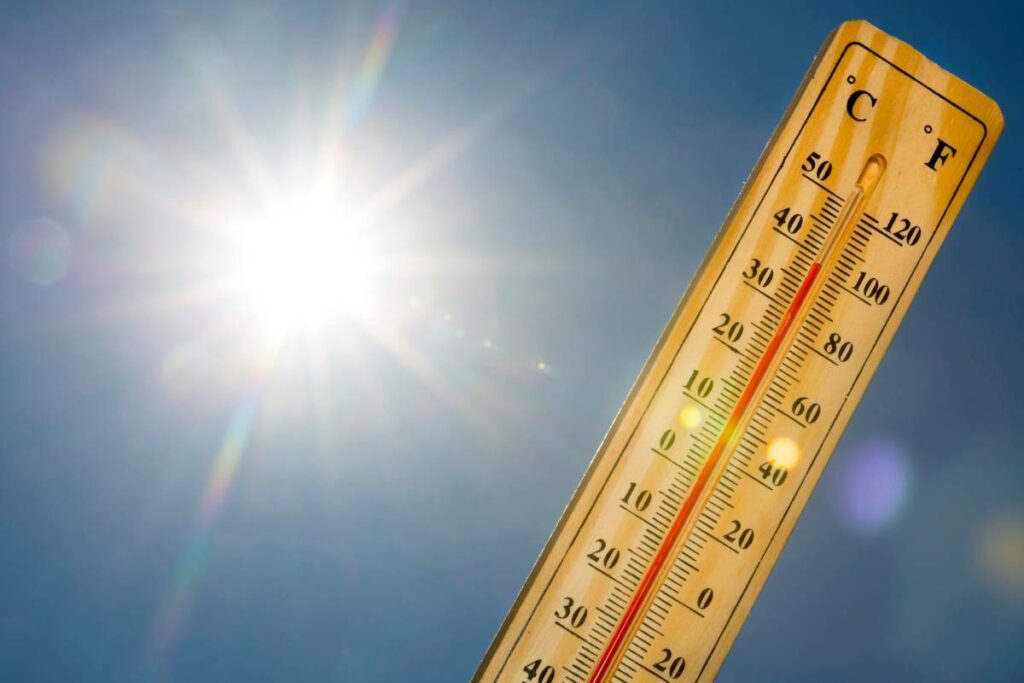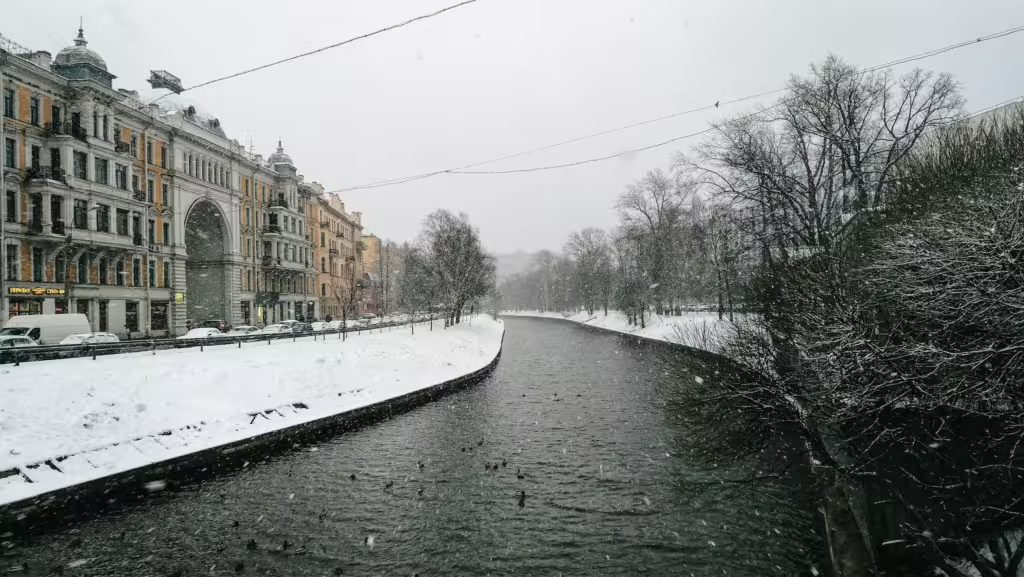The debate over man-made global warming has been dominated, to put it mildly, by the assumption that the world is warming and will continue to warm, possibly at an accelerating pace. What if it’s not? One swallow does not make a summer, nor one frost a cooling trend. But when an NBC email alerts you that “21 runners die in extreme weather at mountainous ultramarathon in China” you’re a bit surprised to hear that, as the story it linked to said, it wasn’t heat that did them in but cold. And the deeper question is whether the warming trend since around 1880 was not (a) partly natural (b) partly an artefact due to the urban heat island and various increasingly suspicious adjustments to keep the panic going and (c) over. Because if so, there’s going to be a lot of explaining to do.
In the United States, as NBC admitted, “Memorial Day weekend washout likely for millions, but will Monday salvage things? The weather this year, unfortunately, won't feel like summer across the Midwest and the East Coast.” And while supposedly Ottawa had a fairly warm May it didn’t feel that way, though, especially with a run of single-digit lows and frost warnings closing out the month… and many of the seedlings.  (To say nothing of the significant mid-May snow reported by a viewer in Edmonton, Alberta.)
(To say nothing of the significant mid-May snow reported by a viewer in Edmonton, Alberta.)
Our UK readers complaining of cold weather there were not imagining it either. The reason, of course, was weird antics by the jet stream, not some climate trend, just as the BBC tweeted on May 20 that “On this day last year we saw 28.2C. Today’s high temp will only be around 15C... ??” without drawing any inconvenient conclusions (some retweeters cheerily did it for them). And in NBC’s story about the United States, there wasn’t a hint of climate in the reporting of odd details like “temperatures as chilly as 20 degrees below average will make it feel more like March than the end of May…. The cold air arrived Thursday giving Marquette, Michigan, its coldest May day in 75 years with a high of only 39 degrees. By Friday morning, that same air was cold enough to produce some wet snow enough to dust the grass in central Wisconsin…. The unsettled weather will continue across the East on Saturday and Sunday, when high temperatures in the 50s could set cold records for those days.” Unsettled weather. Nothing to see here folks.
Scotland was also even chillier than usual. And for those who dismiss the Medieval Warm Period as a regional fluke, Sydney Australia set a record for cold days in May in the last half-century. But the real issue is much broader. What if there’s no secular warming trend as we enter the 3rd decade of the 21st century at all?
Well, one solution is to chop off the data if it gets ugly as the American EPA apparently recently did. Along with the 1930s heat wave. And fudge the definition of a heat wave. Another is to talk and talk fast. And indeed the explaining has already begun.
Or rather, the explaining away. Like that Forbes piece saying “2021 European Cold Spring Does Not Mean Climate Change Is Fake”. Which at least admits the spring has been cold. Indeed Emanuela Barbiroglio, “Senior Contributor Sustainability” says “April 2021 was the coldest since 2003 for Europe, with a monthly average temperature 0.9°C below the 1991-2020 average. What should you say to family members doubting climate change because they see snow around them?” First you should say stop being so simplistic our teeth hurt. Nobody who heard of woolly mammoths doubts climate change. What many doubt is accelerating man-made climate change.
Second, her argument for 2021 being unusual is that it’s not. “April 2021 was not the first April month since 2003 that was colder than average. In April 2017, Europe experienced wintery conditions that bear a lot of resemblance to what we saw last month, with a Europe-wide monthly temperature 0.7°C below average.” Besides, “According to climate reanalysis scientist Julien Nicolas, who is working on temperature monitoring at the EU Copernicus climate change service (C3S), “one should not lose sight of the big picture”.”
We’re game. So how about a piece by Dr. David Whitehouse recently published in the Global Warming Policy Foundation’s “The Observatory” showing that 2021 is a cool year so far, and moreover that the last decade has seen temperature variations driven by El Nino-La Nina patterns not any secular warming trend. Now the essence of science being prediction, he notes that “The latest report from the World Meteorological Organisation says that over the next five years at least one of them will exceed that limit with a 90% certainty dislodging 2016 as the world’s warmest year,” and that WMO Secretary-General Prof. Petteri Taalas said “these are more than statistics. Increasing temperatures mean more melting ice, higher sea levels, more heatwaves and other extreme weather, and greater impacts on food security, health, the environment and sustainable development.” But, Whitehouse then adds, “His claims are the habitual alarmist mantra in contrast to empirical observations.” But “if the WMO’s models are right then we can expect a large increase in global temperature after the current La Nina conditions even if there is not an El Nino.” And if not, there’s an issue with those models.
The issue here isn’t just whether there’s really a climate emergency versus a gentle warming that does not justify panic, as for instance the latest Global Warming Policy Foundation report “The State of the Climate 2020” suggests, including discussing the complexities of temperature and the absence of a sharp increase. It’s whether a long natural warming cycle coming out of the Little Ice Age is now coming to its natural end despite a minor human impact.
Those keen to rally round the white flag, to concede man-made global warming and then try to get people to act as if it didn’t matter, and you know who you are, will not want to hear what comes next. But a recent paper in the History of Geo- and Space Sciences makes a point that deserves careful examination especially if the predictions of man-made-CO2-driven warming continue to fizzle: “an epistemological examination of the geochemical analyses performed on the Vostok ice cores invalidates the marked greenhouse effect on past climate usually assigned to CO2 and CH4. In agreement with the determining role assigned to Milankovitch cycles, temperature has, instead, constantly remained the long-term controlling parameter during the past 423 kyr, which, in turn, determined both CO2 and CH4 concentrations, whose variations exerted, at most, a minor feedback on temperature itself.”
Maybe it’s not true. Author Pascal Richet himself simply wants people to test the hypothesis because “If not refuted, the demonstration indicates that the greenhouse effect of CO2 on 20th century and today’s climate remains to be documented, as already concluded from other evidence” though for good measure he adds “Perhaps the most important feature evidenced by the history of science is how ideas that were unanimously accepted for very long periods of time have eventually been firmly rejected.” And we agree because if you actually scan the historical record for evidence that CO2 drives temperature you find shockingly little for something now accepted as gospel by so many in the centre and on the right as well as on the left.
At any rate, the global warming hypothesis does depend on global warming, and indeed on a fairly robust link between rising CO2 and rising temperature. If the temperature stops rising, what are they all going to say?


